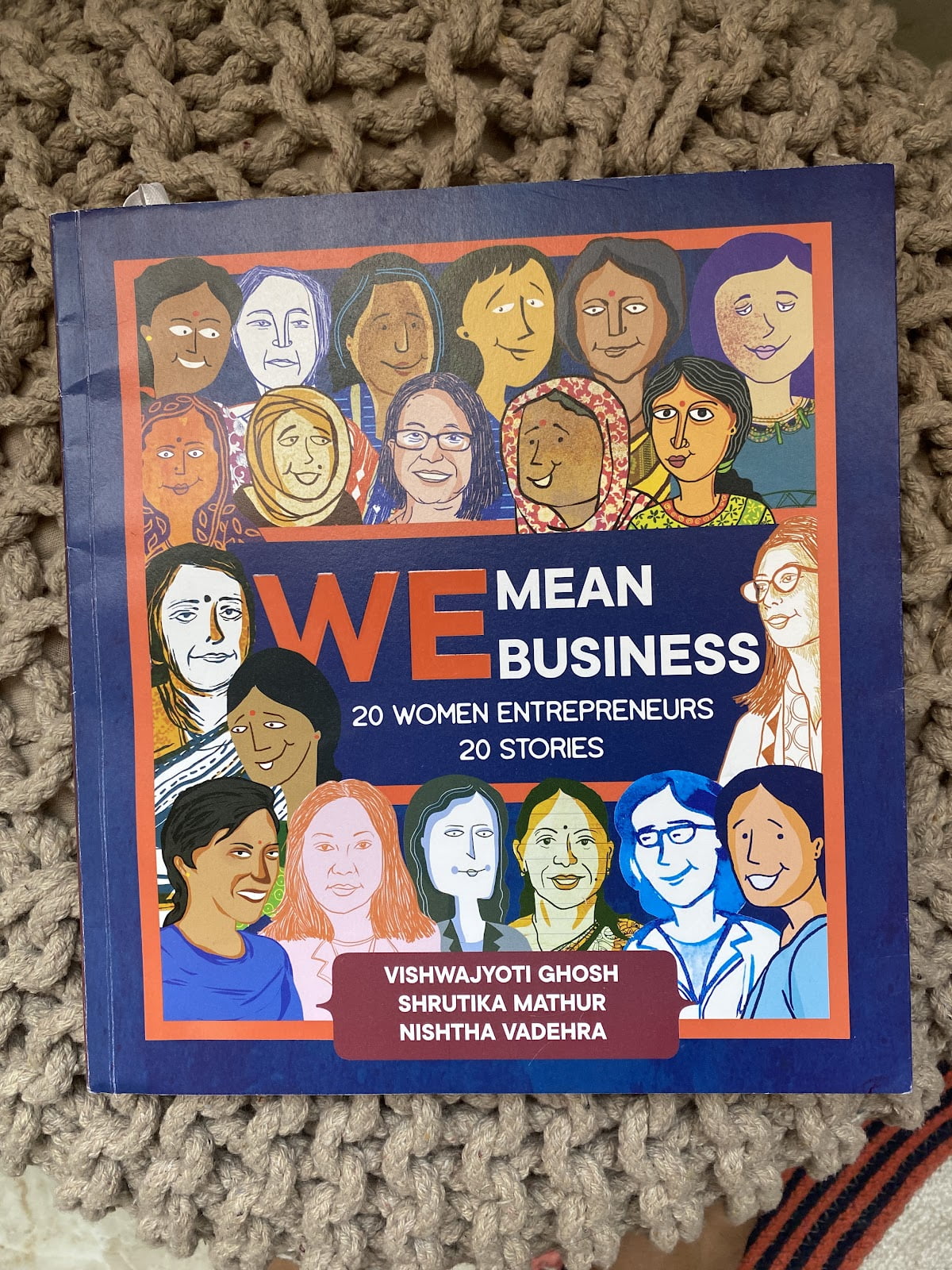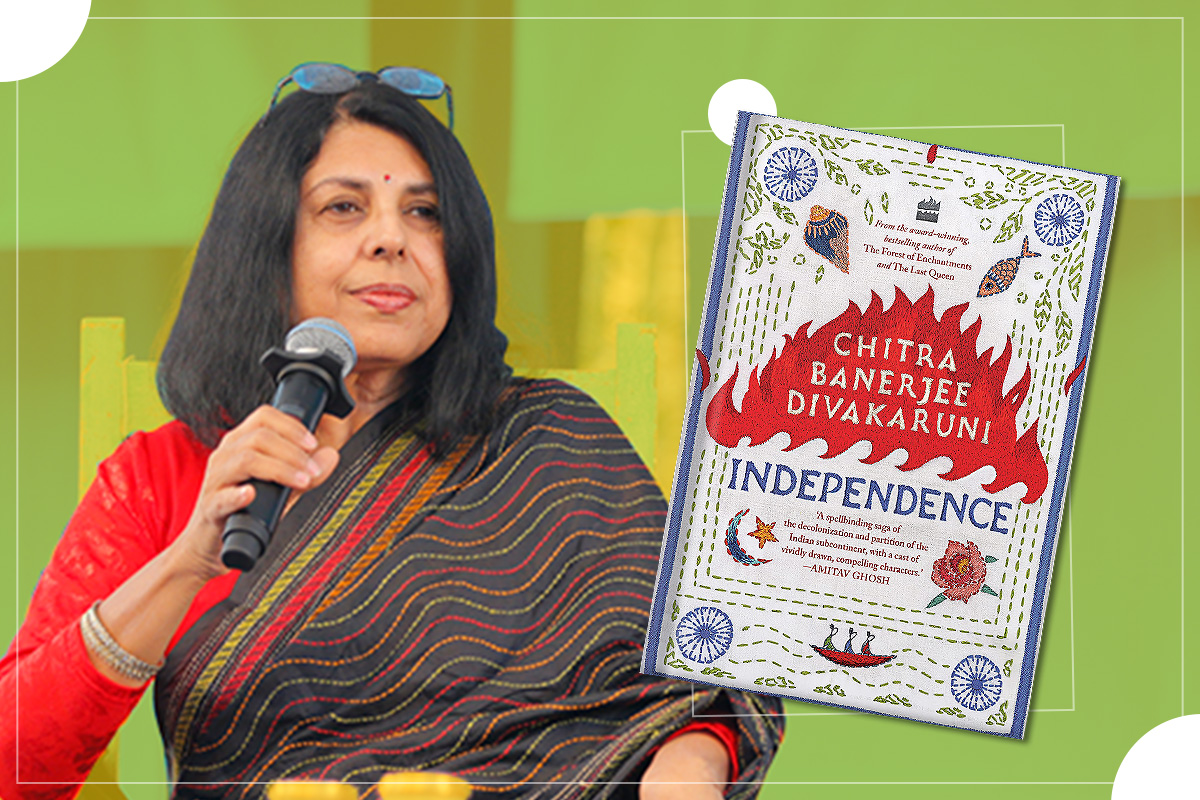‘We Mean Business’ is an anthology of graphic narratives by and of 20 women entrepreneurs and businesswomen from across India. These women belong from all walks of life, yet their determination and their passion unite them. Collectively written and designed by Vishwajyoti Ghosh, Shrutika Mathur and Nishtha Vadehrathis, this book is the product of extensive interviews conducted over a year and uses the visual medium of cartoons to convey the stories of these inspirational figures.
Having one’s business is like having a baby that requires constant nurturing, and socialising for a scope of growth, which each of these stories showcases. Many women within these stories were married and became the sole earners of their families and it would not be possible if they didn’t have a support system.
Each chapter within the book encapsulates the essence of these stories through a beautiful amalgamation between art and narrative. Thus, providing the reader with a real-time experience of the events.
While talking about the book, Vishwajyoti Ghosh, the face behind the political cartoons we see in the newspaper and the main illustrator of the book, says “The style of artwork I chose to tell the story of each woman in the anthology has inspired the nature of her story. Each case study is different from the others and so is the artwork. It took about a year to put the book together as we had to take a deep dive into small and accurate details of the entrepreneur’s journey.”
Also read: Paikabai Khobragade: The 19th Century Dalit Businesswoman
While I agree with Ghosh, what captured my attention was not just how it captured the journey of these women, but also how it showcased the relationship of protagonists with their families and friends. Having one’s business is like having a baby that requires constant nurturing, and socialising for a scope of growth, which each of these stories showcases. Many women within these stories were married and became the sole earners of their families and it would not be possible if they didn’t have a support system.
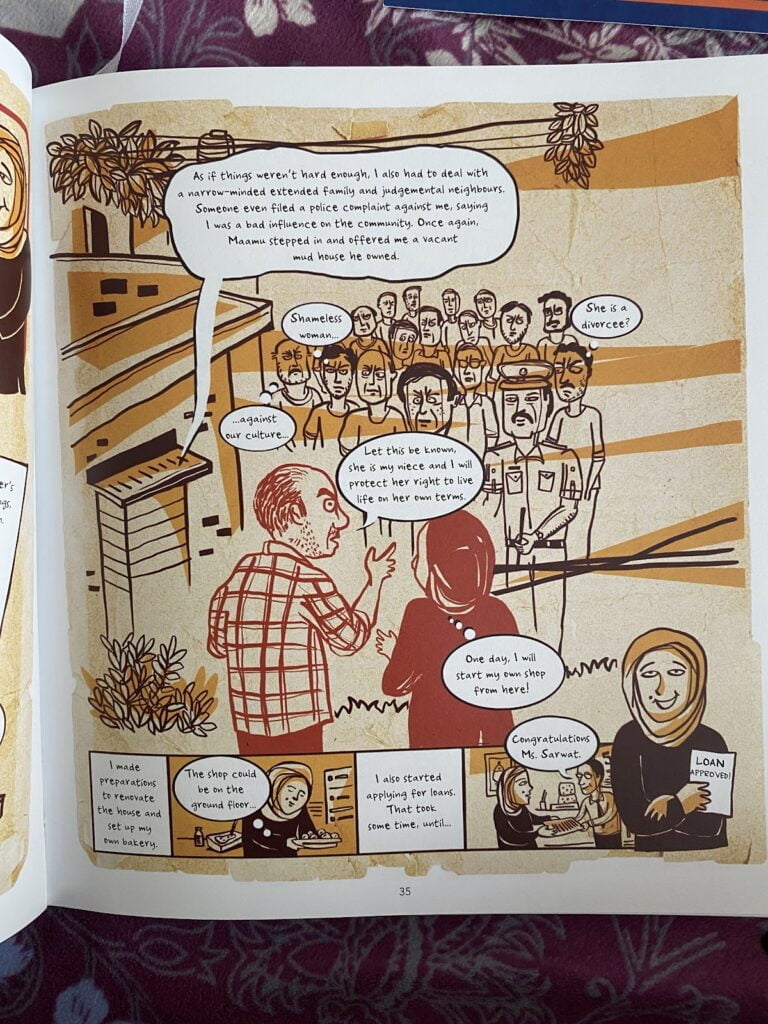
Amongst many, I was extremely moved by Sarwat’s story. Sarwat Gulam Kadar Bhagwan opened her bakery after getting thrown out of her in-laws’ house for having a baby girl. She started Mariya Bakers and Foods in 2004 as a small unit. Today her bakery not just serves retail customers but also large-scale institutions. But as Sarwat points out, it would not have been possible if her mother and sister didn’t look after her daughter while she worked 2 jobs. She also thanks her uncle who taught her baking and defended her when her extended family and society were keen on throwing her out of the house.
“The exercise of getting 40 narratives in place and then shortlisting them was challenging as each story was valuable in its own merit.”
Shuritika Mathur
Like Sarwat, Neerja Palisetty founded her organisation, namely Sutrakaar Creations, through the help of her father and grandmother. Through her organisation, she produced bags, stationery and clutches made from discarded papers like handmade paper and newspaper. But as she recalls, this was all due to the support and knowledge of her father. She also credits her grandmother and her upbringing which has brought her to where she is today.
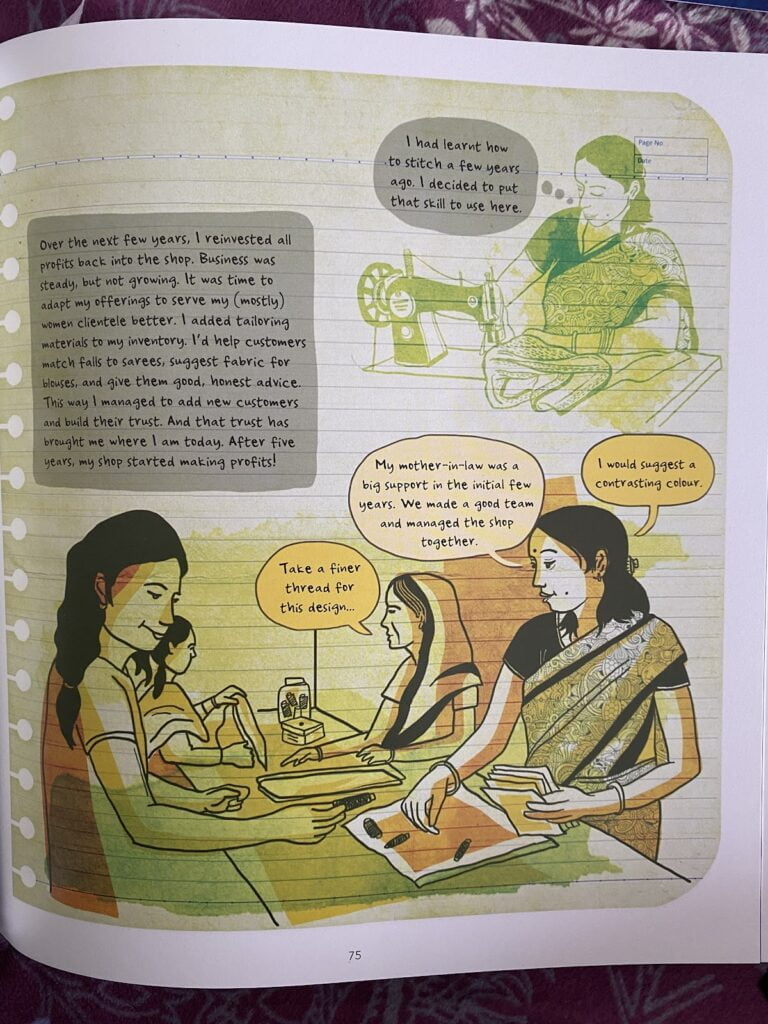
Like Sarwat and Neerja’s story, the stories in this book are a selection from the project conducted by GIZ (Deutsche Gesellschaft fur Internationale Zusammenarbeit) in the name of “Her&Now” to promote aspiring and existing women entrepreneurs in India. The project is supported by the Ministry of Skill Development and Entrepreneurship, Government of India. Through this, they aim to improve the existing framework of women-led businesses. They have till now supported 900 women-led businesses, nurturing their networks and building an ecosystem for them that is gender-sensitive.
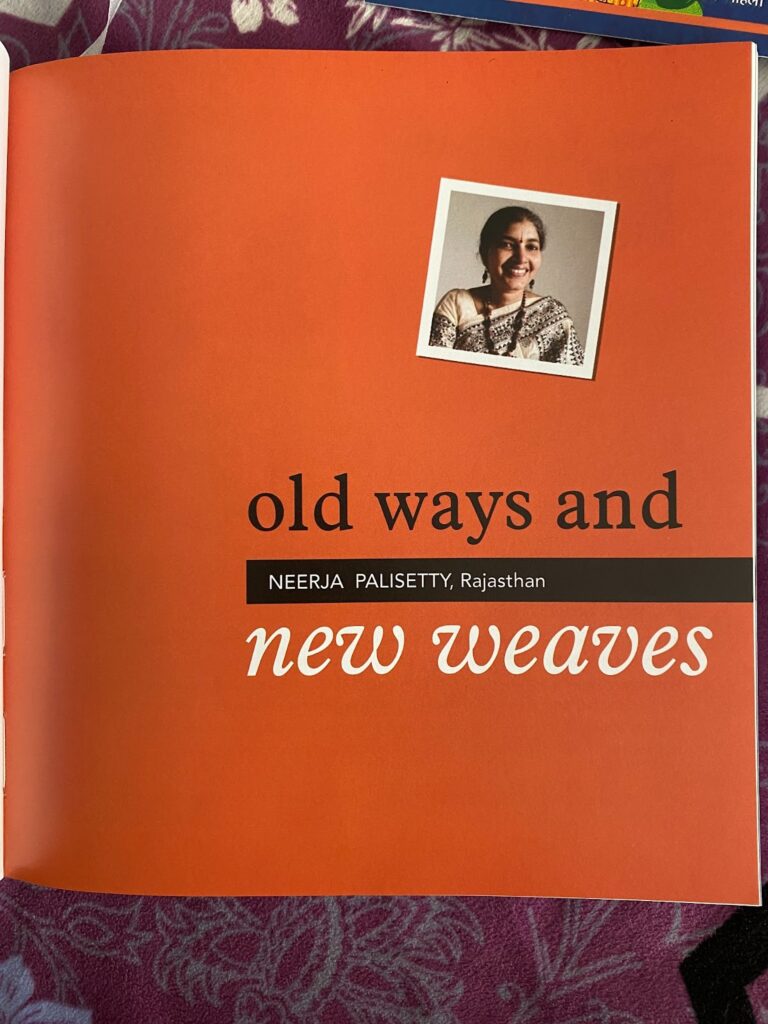
Among these 900 women, 40 were handpicked out of which 20 women’s stories are reflected in this book. Shuritika Mathur one of the authors shares that “The exercise of getting 40 narratives in place and then shortlisting them was challenging as each story was valuable in its own merit.”
The stories that are mentioned here are from tier 2, and tier 3 cities of Rajasthan, Gujarat, Manipur etc. Some of them also hail from rural regions of the country. The book is already published in English and is also published in Hindi under the name of “Mera Business, Meri Kahani”. The book is published by GIZ and co-published by Yoda Press.
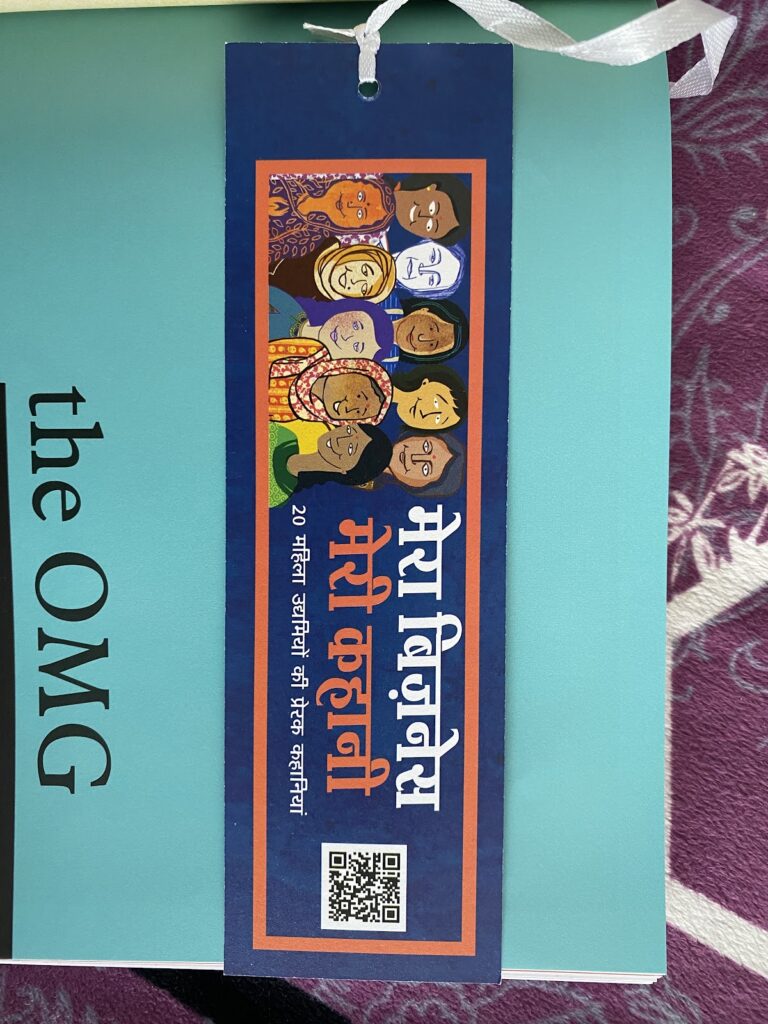
The entrepreneurs in the book are namely Bharti Aribam Sharma, Neerja Palisetty, Sarwat G Bagwan, Dilu Sharma, Reena Bharti Rana, Elizabeth Yambem, Vanita K Vidhate, Ishu Shiva, Lovely Baruah, Babi Kumari, Hemlata Mishra, Saka Shailaja, Deeksha S Gupta, Vekuvolu Dozo, Sapna Sharma, Maggie Lalnunsangi, Sarita Surale, Nengneithem Hengna, Zainab Raj and Manju Devi.
Also read: Women In Male-Dominated Work Sectors: Where Do We Stand And What Is The Way Ahead?
The book was recently launched in New Delhi’s Triveni Kala Sangam and was attended by some of these women. Amongst them, Ishu Shiva, the founding member of Sanitree, a social enterprise, recounts, “I still can’t believe I am standing here and holding a book that has my story featured in it. It’s an overwhelming feeling for me. My parents will be super proud of my achievements and that’s the biggest success for me. Thank you, project Her&Now for supporting us and showcasing our stories to the world through this book.”
In conclusion, I would add that ‘We Mean Business’ is not just a book that takes you through the journey of these inspiring women, but it also allows you to directly engage with their businesses. How? Each story in the book starts with a QR code that takes you to their website or to their product directly. One can then purchase and even talk to these women to understand their journey first-hand.
About the author(s)
Vedika is an intersectional feminist who uses cinema and everyday experiences to talk about issues rooted in the vernacular. She loves to bake and travel around the country to explore different cultures and write down people’s stories. Vedika hopes to get an opportunity to cover such stories around the world. She is also a romantic who loves to read poems, personal essays and won’t mind vibing to slow songs
